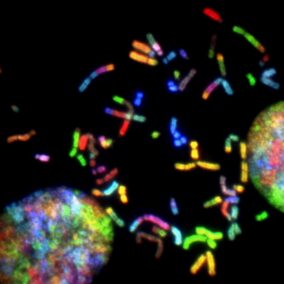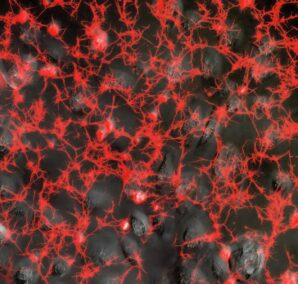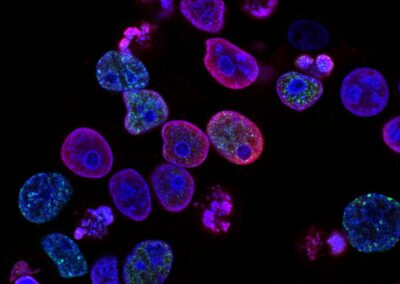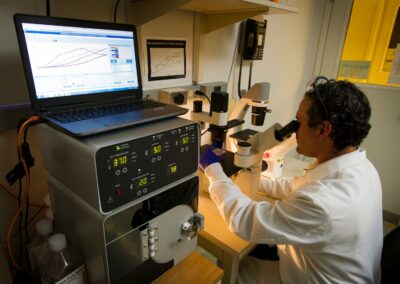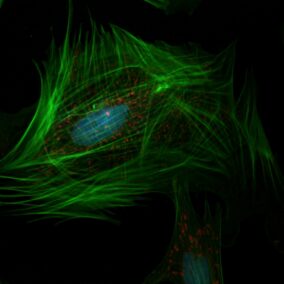Pioneering Healthcare Innovations in Gene Editing
The Impact of Gene Editing Technology on Blood Disorders
Gene editing technology has emerged as a groundbreaking tool in the treatment of blood disorders, offering new hope for patients worldwide. Utilizing advanced techniques such as CRISPR-Cas9, scientists can now modify specific genes to correct genetic defects that cause blood disorders. This revolutionary approach has shown significant promise in preclinical and clinical trials, transforming the landscape of medical treatment for conditions like sickle cell anemia and beta-thalassemia.
In Saudi Arabia and the UAE, where healthcare innovation is a priority, gene editing technology is being rapidly adopted to address the high prevalence of genetic blood disorders. The integration of these advanced therapies into the healthcare systems of Riyadh and Dubai is a testament to the regions’ commitment to leveraging cutting-edge science for the benefit of their populations. By embracing gene editing, these nations are not only improving patient outcomes but also positioning themselves as leaders in the global biotechnology sector.
Gene editing offers a potential cure for many inherited blood disorders, significantly improving the quality of life for patients. For instance, CRISPR technology can be used to correct the faulty genes responsible for sickle cell disease, leading to the production of healthy red blood cells. This innovative approach reduces the need for lifelong treatments and frequent hospital visits, providing a more sustainable and effective solution for managing blood disorders.
Transforming Healthcare through Gene Therapy
Gene therapy, a key component of gene editing technology, is transforming the approach to treating blood disorders. By delivering new or modified genes directly to a patient’s cells, gene therapy can address the root cause of genetic diseases. This method offers a more precise and targeted treatment compared to traditional therapies, which often only manage symptoms rather than providing a cure.
In the UAE, particularly in cities like Dubai, healthcare providers are increasingly incorporating gene therapy into their treatment protocols. This shift is driven by the need to provide more effective and long-lasting treatments for patients with genetic blood disorders. The success of these therapies in clinical trials has paved the way for their broader adoption, bringing hope to many patients who previously had limited treatment options.
The application of gene therapy in Saudi Arabia is also gaining momentum. With significant investments in biotechnology and medical research, the country is well-positioned to become a hub for advanced gene therapies. By fostering collaborations between research institutions, healthcare providers, and biotech companies, Saudi Arabia is creating a robust ecosystem that supports the development and implementation of gene therapy solutions.
Challenges and Opportunities in Gene Editing
While gene editing technology holds immense potential, it also presents several challenges that need to be addressed to ensure its successful implementation. Ethical considerations, regulatory approvals, and the technical complexity of gene editing are among the primary hurdles that must be overcome. However, these challenges also present opportunities for innovation and collaboration among scientists, policymakers, and healthcare providers.
In Riyadh and Dubai, regulatory bodies are working to create frameworks that support the safe and effective use of gene editing technologies. These efforts include establishing guidelines for clinical trials, ensuring patient safety, and promoting ethical research practices. By addressing these challenges proactively, Saudi Arabia and the UAE are setting the stage for the responsible and sustainable use of gene editing in healthcare.
Another significant opportunity lies in the education and training of healthcare professionals. As gene editing becomes more integrated into medical practice, there is a growing need for specialists who are well-versed in these advanced techniques. Both Saudi Arabia and the UAE are investing in educational programs and partnerships with leading international institutions to develop a skilled workforce capable of advancing gene editing research and clinical applications.
Advancing Medical Frontiers with Gene Editing
The Role of Artificial Intelligence in Gene Editing
The integration of Artificial Intelligence (AI) with gene editing technology is propelling the medical field into new frontiers. AI can analyze vast amounts of genetic data quickly and accurately, identifying patterns and predicting the outcomes of gene edits. This capability enhances the precision and efficiency of gene editing, making it possible to develop more effective treatments for blood disorders.
In the UAE, particularly in Dubai, AI is being harnessed to optimize gene editing processes. By using machine learning algorithms, researchers can simulate gene edits and predict their effects before conducting actual experiments. This approach not only accelerates the research process but also reduces the risk of unintended consequences. The combination of AI and gene editing represents a significant advancement in the quest to cure genetic blood disorders.
Saudi Arabia is also leveraging AI to enhance its gene editing capabilities. The country’s investment in AI research and development is driving innovations in medical biotechnology. By integrating AI with gene editing, Saudi researchers can achieve higher precision in gene therapy, leading to better patient outcomes and more efficient use of resources. This synergy between AI and gene editing is positioning Saudi Arabia as a leader in the global healthcare landscape.
Blockchain Technology and Gene Editing
Blockchain technology offers a secure and transparent way to manage genetic data, addressing one of the critical challenges in gene editing. By decentralizing data storage and using cryptographic methods to protect information, blockchain ensures that genetic data is secure and only accessible to authorized parties. This level of security is crucial for maintaining patient trust and ensuring the integrity of genetic research.
In Riyadh and Dubai, blockchain is being integrated into gene editing platforms to enhance data security and transparency. This integration allows researchers to track and verify every step of the gene editing process, from data collection to clinical application. By providing a tamper-proof record of genetic modifications, blockchain technology helps ensure that gene editing practices adhere to ethical and regulatory standards.
The adoption of blockchain in gene editing also facilitates collaboration among researchers and institutions. By providing a secure platform for sharing genetic data, blockchain enables more efficient and transparent research collaborations. This collaborative approach is essential for advancing gene editing technologies and developing new treatments for blood disorders.
Conclusion: The Future of Gene Editing in Healthcare
The advancements in gene editing technology are transforming the treatment of blood disorders, offering new hope to patients and revolutionizing healthcare. By leveraging cutting-edge techniques like CRISPR, gene therapy, and the integration of AI and blockchain, Saudi Arabia and the UAE are leading the charge in medical innovation. These technologies provide precise, effective, and sustainable solutions for managing and potentially curing genetic blood disorders.
As the field of gene editing continues to evolve, the role of executive coaching and change management will be crucial in ensuring the successful implementation of these advanced therapies. By fostering a culture of innovation and continuous improvement, business leaders in Riyadh and Dubai can navigate the challenges and opportunities presented by gene editing technology.
The commitment to advancing gene editing in Saudi Arabia and the UAE not only improves patient outcomes but also positions these nations as leaders in global healthcare. By embracing these innovative solutions, they are setting new standards for medical treatment and paving the way for a healthier and more promising future.
—
#GeneEditingTechnology #GeneTherapy #CRISPR #BloodDisorderTreatments #GeneticEngineering #UAEHealthcareInnovation #SaudiArabiaMedicalAdvancements #RiyadhGeneTherapy #DubaiBiotechnology


